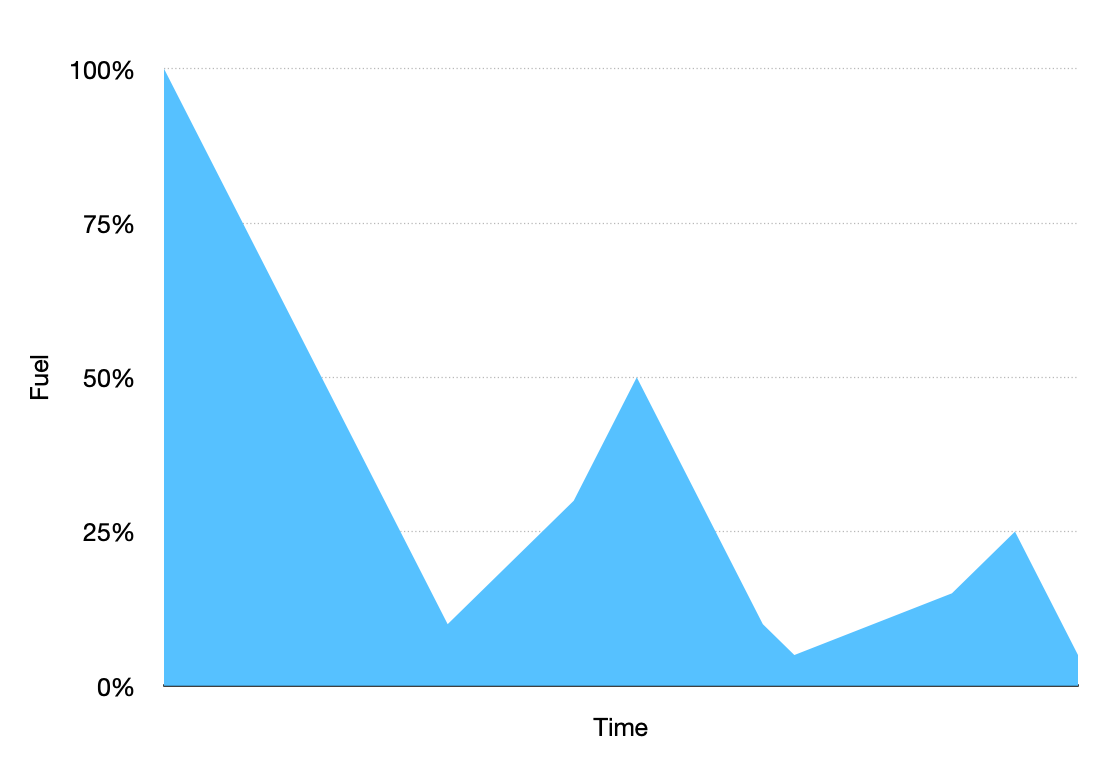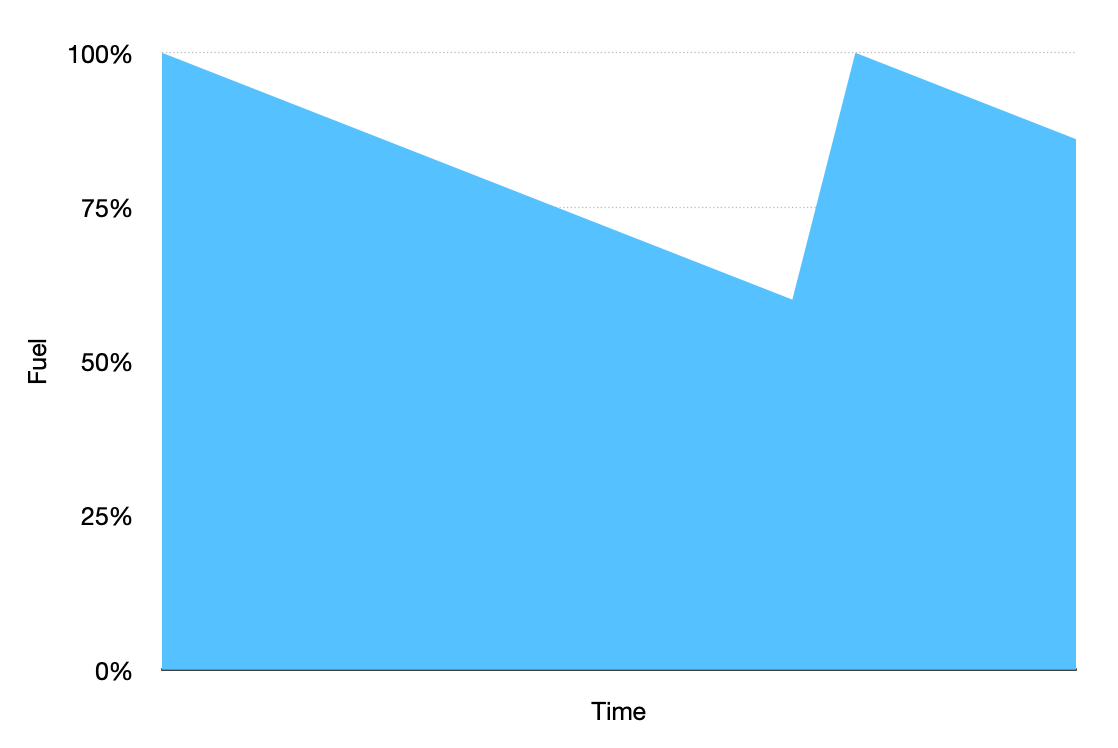March 08, 2021
I've been thinking about burnout.
It's a topic that comes up often, and the framing is almost always the same: The team is feeling burnt out. What can we do to help them recover? The proposed answers tend to fall into a few predictable categories: games or other social activities, encouraging team members to take time off from work, and gifts (like one of those "I survived <insert nightmarish project>" T-shirts).
All of these proposed answers for addressing burnout are good things. I like social activities! I like for people to take time off from work! I like giving gifts! However:
- These tactics are all reactive, not proactive
- These tactics are not guaranteed to be effective
Something most of us don't spend enough time thinking about is how to prevent burnout. We tend to take it for granted that if people are working too much and not getting enough breaks, burnout is inevitable. And I'm sure there is some truth to this. But the way I think of burnout highlights a couple of key variables in this formula that I believe deserve more attention.
Running on empty
To do work, we all need fuel. Call it motivation, energy, bandwidth, whatever you want; but there is something intangible that we need to get things done, and it is a finite resource. Some activities consume this resource, while others replenish it. Most of us can tell when we're running dangerously low on this fuel. Burnout is the feeling you get when you've run out. You can't do any more work until you refuel.

I like this way of thinking about burnout because it brings two very specific questions into focus:
- At what rate are we burning fuel?
- How can we refuel most effectively?
In my experience, normally when burnout is a concern, it's because there is an underlying problem in the answer to one or both questions.

The above image depicts a scenario that's all too typical. Fuel is being burned fast. Team members struggle to feel motivated as the experience of doing their jobs is draining. I think of this as like having a leaky fuel tank. Something is causing fuel to be depleted faster than it should.
At the same time, when team members do take time to refuel, it isn't very effective! Imagine if, to fuel your car, you had to stand at the pump for 1 hour just to be able to drive another 30 minutes. The economics of a situation like that are dumbfounding. And yet sometimes it can feel like this at work.
Burning slower
If you have a leaky tank, the logical thing to do is not to stop at a gas station every 50 miles. The logical response is to find the leak and fix it.
Some examples of things that can make work frustrating, causing fuel to be depleted too quickly:
- Doing work requires too much procedural overhead: filling out forms, submitting tickets, getting approvals for simple things
- Doing work requires too much technical overhead: changes need to be tested manually, systems are confusing or difficult to learn, automated builds are slow or flaky
- Team members aren't comfortable with their teammates or don't feel supported
- Team members are confused and don't understand the value of what they're asked to do
- Team members don't know how to voice their concerns or feel they're being ignored by their leaders
No two teams are identical, so only some or none of the above examples may be applicable to your team. But chances are, if burnout is an issue, there is something happening at work that's depleting team members' energy faster than it should be.
Refueling faster
If you go to the gas station and it takes half a day to fill your tank, the logical thing to do is not to always budget half a day to refuel whenever you're out of gas. The logical response is to find a faster way to refuel.
It's easy as a manger to say, "Take tomorrow off" or "Take next week off". Unfortunately, it's all too common for employees to take time off, only to come back to work feeling anxious that they've fallen behind. Rather than being resftul, their time off left them restless.
This is a tragic outcome. The manager thinks they've done the right thing: they recognized their team member's burnout and they took it seriously. The team member, meanwhile, still feels burnt out, but now with the added burden of feeling guilty, regretful, resentful, or all of the above.
It's therefore important for managers who are dealing with burnout not to take the easy route, but rather to work with our teams on finding the best way to refuel.
For example, maybe a team member misses a family member or loved one. Instead of "Take next week off", which would give them very little time to make arrangements, their manager could ask them to plan a trip and work with them on adjusting project plans around it. Another team member might not want to take time off, but would rather take a break from their current project to work on something else. Still another team member might be highly motivated but simply misses the face-to-face interactions they used to have at the office and would appreciate some extracurricular time together as a team.
Inevitably, there won't be a one-size-fits-all solution here. The important thing is that if the goal is to give team members a chance to recharge, we need to first understand what actually recharges them.
What it should look like
This is what we want.

Hopefully we've all had the good fortune to work in environments like this. The work is enjoyable and fulfilling, so the burn rate is low (no leaks in the tank). Meanwhile, when team members do take time to refuel, they're able to spend that time effectively—traveling, visiting loved ones, pursuing hobbies, whatever it may be—and they can come back feeling refreshed rather than overwhelmed.
I wish I had a magic recipe for achieving this desired end state in all circumstances. I don't. What can be particularly tricky is that for large teams, the right approach may very well differ across sub-teams.
Regardless, the surest way I can think of to get there is to ask the right questions. What's causing us to lose fuel? (How can we patch any leaks?) And what are the best ways for us to replenish? A team that can answer both of these questions has the key to avoiding burnout.
